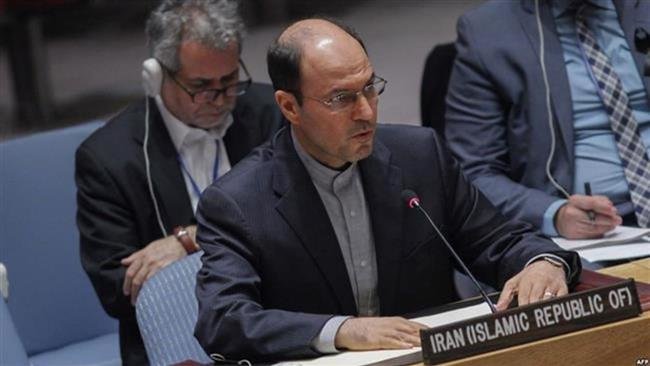Iran bearing heavy burdens of fighting narcotics: Iran’s envoy to UN

TEHRAN — Iran has been carrying great burden of fighting narcotics over recent years, Gholamhossein Dehqani, the ambassador and deputy permanent representative of Iran to the UN, has said.
“In fact, around 4,000 of our law enforcement officers have lost their lives while 12,000 have been maimed in the course of Iran’s relentless campaign against regional and international armed drug traffickers,” Dehqani said at the UN General Assembly Third Committee 2016 on Friday.
Over the session which was held to discuss subjects pertaining to drugs Dehqani elaborated on Iran’s measures and endeavors in fighting against illicit drugs, IRNA reported.
“As a country at the frontline of countering illicit drugs, the Islamic Republic of Iran has sustained huge life and property losses in order to deprive the merchants of death of the bulk of their illicit drugs; and thus protecting part of the global community from the evil of addiction,” he said addressing the committee.
“Iran has also spent billions of dollars for equipping the border areas and creating physical barriers along its borders for blocking the drug flow into the country as well as transiting it abroad [and] as a result, on an average more than 80 percent of world opium and approximately 40 percent of world heroin and morphine are seized in Iran so much so that only in 2015 approximately 620 tons of different types of drugs were seized in Iran,” he highlighted.
Mentioning the 40 percent voluntary referral by addicts and drug users to rehab centers, Dehghani note that a 60 percent decrease in HIV transmission among injecting drug users has been recorded.
Unfortunately, for a long time the brunt of the burden is mainly born by transit countries like Iran, he said, regretting, “While drug traffickers with obvious links to terrorist groups including takfiri ones and organized crime gangs are targeting the social fabric of our society and stealing our future and youth generation, the support provided by the international community has been thus far negligible.”
Year after year, the UN General Assembly allocates to its Social, Humanitarian and Cultural Affairs Committee, commonly referred to as the “Third Committee”, agenda items relating to a range of social, humanitarian affairs and human rights issues that affect peoples all over the world.
The Committee discusses the advancement of women, the protection of children, indigenous issues, the treatment of refugees, the promotion of fundamental freedoms through the elimination of racism and racial discrimination, and the promotion of the right to self- determination. The Committee also addresses important social development questions such as issues related to youth, family, ageing, persons with disabilities, crime prevention, criminal justice, and drug control.
In October and November 2016, the Committee will hear and interact with over 50 special rapporteurs, independent experts, and chairs of working groups as mandated by the Human Rights Council.
MQ/MG
